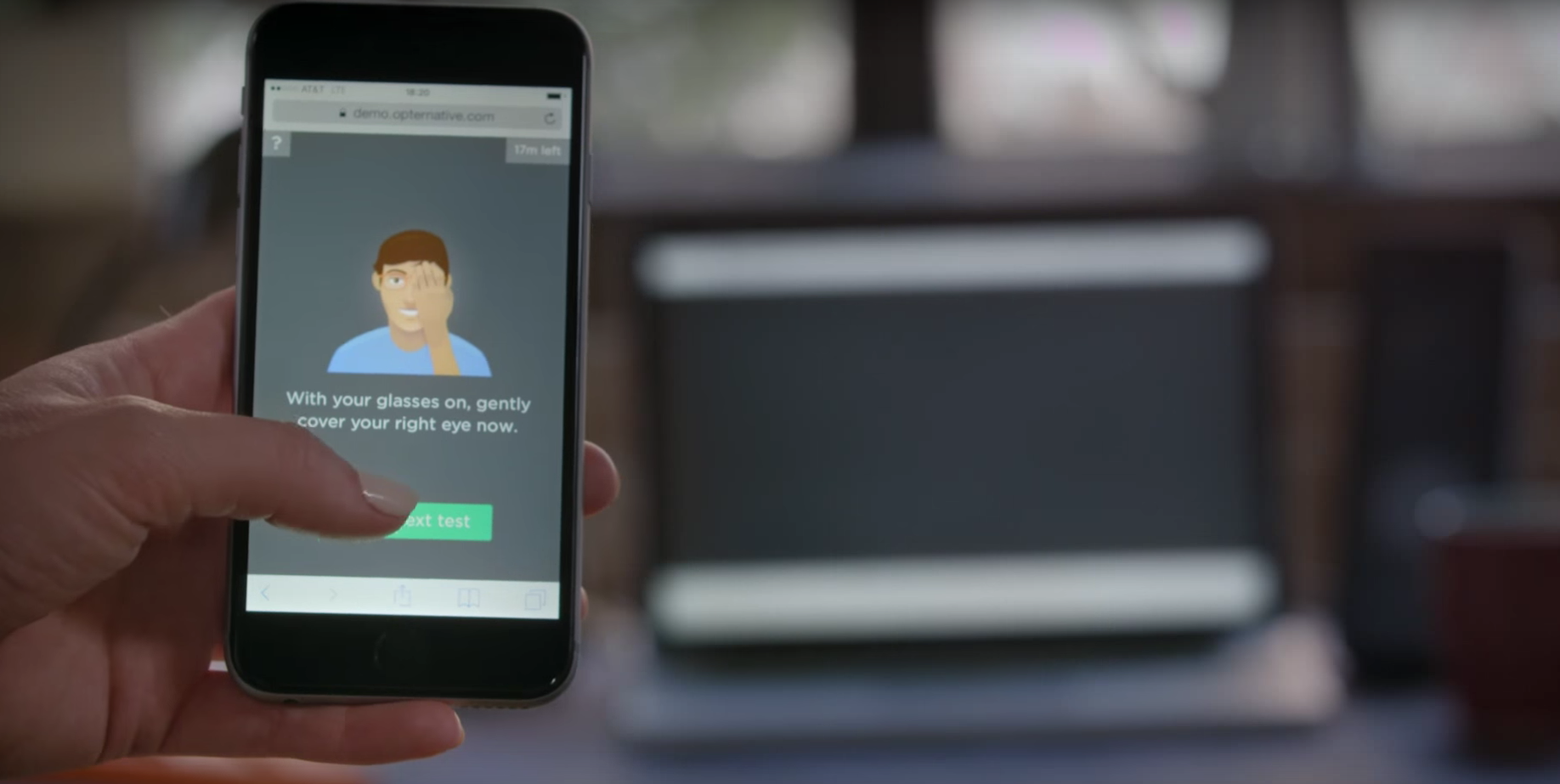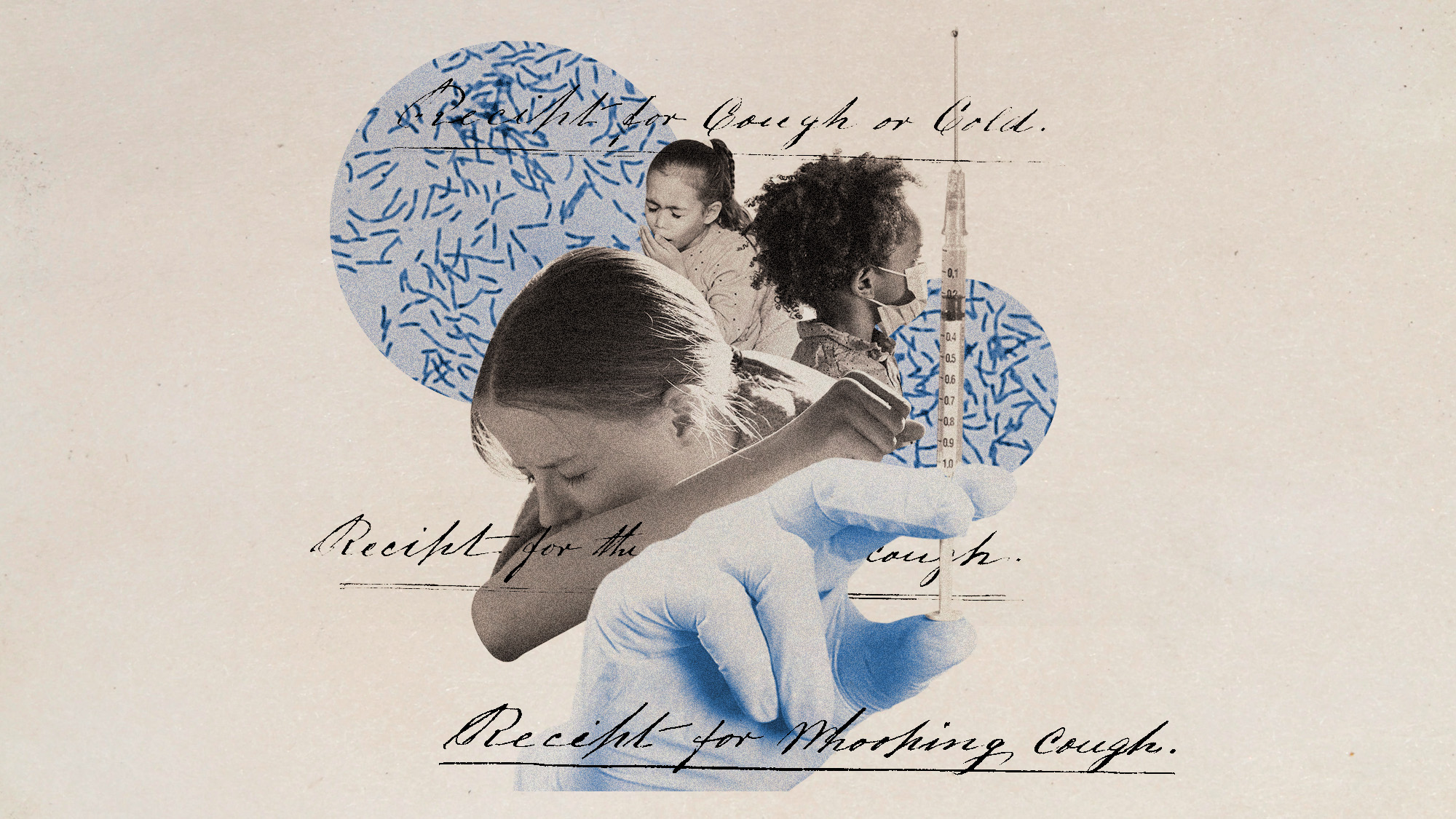Can this online vision test replace your eye doctor?
Part of our special report on innovation


For those of us with less-than-perfect eyesight, making time for regular appointments with the eye doctor can be a pain. The hassle of finding an office that takes your insurance, creating space in your schedule, taking time off work, and paying for your appointment is enough to prevent some people from getting regular check-ups at all, which is why so many of us are walking around with old prescription glasses and contact lenses that are well beyond their expiration date.
A company called Opternative saw a need for innovation in this arena, and created an online eye test, all but cutting out the eye doctor entirely. "The eye exam has evolved," the company touts. All you need to take the test is a computer, a smartphone, and 12 feet of space to put between you and your computer screen. A series of shapes, numbers, and letters will appear and your smartphone guides you through questions and serves as a remote control for selecting answers.
Once the test is over, your results are sent to a licensed ophthalmologist for review. If everything looks normal, he or she writes you a prescription for glasses or contact lenses, which you can have filled anywhere. The process costs $40 for glasses or contacts, $60 for both. No copays or unexpected appointment fees. It's quick and convenient.
Subscribe to The Week
Escape your echo chamber. Get the facts behind the news, plus analysis from multiple perspectives.

Sign up for The Week's Free Newsletters
From our morning news briefing to a weekly Good News Newsletter, get the best of The Week delivered directly to your inbox.
From our morning news briefing to a weekly Good News Newsletter, get the best of The Week delivered directly to your inbox.
"I just want some new glasses and contacts and to go on my way," writes Molly Mchugh at Wired in her review of Opternative. "If I can do that without leaving the house or office, even better."
To no one's surprise, Opternative isn't very popular with eye doctors. The American Optometric Association has some harsh words for the startup: "We actively oppose inferior and outright bad patient care, and instances when technology can be abused in a way that leaves patients misled, misinformed, or confused about the state of their own health," Dr. Steven Loomis, the group's president, told The New York Times. "Opternative knows it's not offering anyone an eye exam, yet they claim that they are."
It's true that there are a ton of eye problems that can only be diagnosed in person, and the possibility that at-home programs like Opternative might prevent people from seeing a doctor when they need to is certainly worrying. Doctors have raised the same concerns over app-based depression treatment or the growing field of text therapy.
And there's always the risk of computer-related complications. For example, what if your screen resolution isn't as crisp as it should be, or the lighting is too low? Opternative leaves a lot up to the user, and "as easy as it is, I can't help but wonder if I'm doing it right," says Mchugh at Wired. An online program also doesn't provide much room for personalized details and nuanced responses to exam questions, which can help determine the right prescription, Dr. Michelle Akler, a board certified ophthalmologist at Akler Eye Center in Dearborn, Michigan, tells Yahoo Health. "I find the patient's speed of answer and additional comments very helpful in arriving at the most optimal prescription," she says.
Sign up for Today's Best Articles in your inbox
A free daily email with the biggest news stories of the day – and the best features from TheWeek.com
But Opternative is careful not to overstate its abilities or make promises it can't fulfill. The company claims its eye exam results are statistically equivalent to those from an in-person exam, but stresses it can't screen for eye health or diagnose serious problems like glaucoma. However, if a patient's results show any potential abnormalities or raise red flags, the site will recommend they see a specialist immediately.
Eye doctors may not like them, but online programs like these may actually lower the barrier to eye health by reaching people with potentially harmful eye problems who otherwise would have never been able to afford any kind of eye exam in the first place. And so far, the Opternative test has received high marks, with a 99 percent satisfaction rate for its prescriptions.
Jessica Hullinger is a writer and former deputy editor of The Week Digital. Originally from the American Midwest, she completed a degree in journalism at Indiana University Bloomington before relocating to New York City, where she pursued a career in media. After joining The Week as an intern in 2010, she served as the title’s audience development manager, senior editor and deputy editor, as well as a regular guest on “The Week Unwrapped” podcast. Her writing has featured in other publications including Popular Science, Fast Company, Fortune, and Self magazine, and she loves covering science and climate-related issues.
-
 The sneaky rise of whooping cough
The sneaky rise of whooping coughUnder the Radar The measles outbreak isn't the only one to worry about
By Theara Coleman, The Week US
-
 Why the GOP is nervous about Ken Paxton's Senate run
Why the GOP is nervous about Ken Paxton's Senate runToday's Big Question A MAGA-establishment battle with John Cornyn will be costly
By Joel Mathis, The Week US
-
 Quiz of The Week: 12 - 17 April
Quiz of The Week: 12 - 17 AprilHave you been paying attention to The Week's news?
By The Week Staff